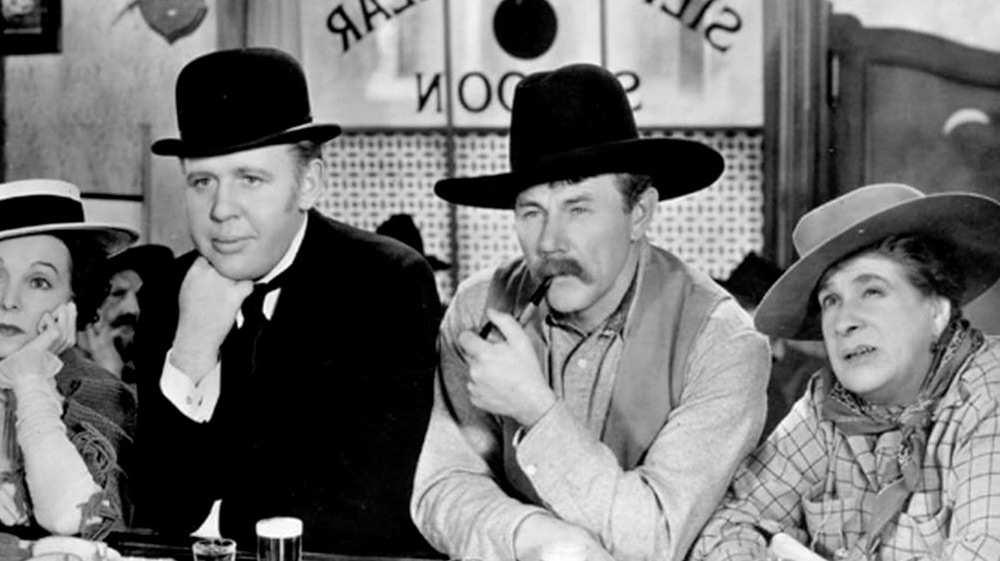Leo McCarey’s comedic instincts were airtight throughout his career, beginning in the silent period. Case-in-point, his casting of Stan Laurel and Oliver Hardy as a comedy duo; their best work present in McCarey’s Liberty (1929), a short about the two overcoming the difficulties of switching pants with one another. McCarey had a knack for chiseling away everything in a scene except that which was necessary to serve the human before the audience. To this effect, Ruggles of Red Gap (1935) is McCarey’s great success. Charles Laughton as butler Marmaduke Ruggles turns in a character that gives Chaplin’s Tramp a run for his money. Ruggles is more talkative and his physicality entirely distinct from the Tramp’s, but his habit for finding himself in the crosshairs of economic contradictions echoes Chaplin’s lower-class clown.
Ruggles is the equerry to the Earl of Burnstead (Roland Young). Without fanfare, his master announces that Ruggles has been lost in a game of poker to a visiting cowboy, Egbert Floud (Charles Ruggles), and will move to Red Gap, Washington, to serve him. The year is 1908 and the Wild West is changing. Egbert’s wife, Effie (Mary Boland), is determined to adapt her husband to a newly emerging bourgeois society and sees Ruggles as her chance to conform him to her standard of etiquette. The film and its star are a perfect pair for a filmmaker who focused on the struggle between social obligations and matters of the heart. Ruggles’s allegiances are torn between the standing class order of servitude to which he is obliged and his desire for emancipation. Egbert is a far more lenient master than the Earl, and Effie despises this. This push-and-pull between the couple causes Ruggles an immense sense of helplessness, as he is abandoned by all the social conventions he ever knew. His new master on the American frontier delights in yelling, drinking absurd amounts of alcohol, and making a general scene, not to mention addressing Ruggles by a friendly nickname, sitting with Ruggles for meals, and introducing Ruggles to high-society types as his visiting friend.
Ruggles’s newly found status as a socially-emancipated individual in Red Gap is solidified when, as an immigrant to the “Land of Slavery” (how he first refers to the U.S. upon notice of his relocation), he is the only man capable of reciting Lincoln’s Gettysburg Address from the heart at the local drinking hole. This leads the bar’s patrons to call for Ruggles to lead the town into a new age. Ruggles of Red Gap offers an intimate glimpse into a changing society, one being molded by its inhabitants toward a more egalitarian understanding of what can come after the Wild West. Through it all, Laughton has a mischievous smirk about him and a remarkably queer manner, in the film owed to his international background. Laughton was, himself, gay, a secret kept to his grave. He is remembered by his wife as someone haunted by this break in his life, a soul lost between desire and obligation—the type McCarey’s camera naturally gravitated toward.
Ruggles of Red Gap screens this afternoon, June 28, and tomorrow June 29, at Anthology Film Archives on 35mm as part of the series “A Risky Life: Letters from Jean-Claude Rousseau.”



